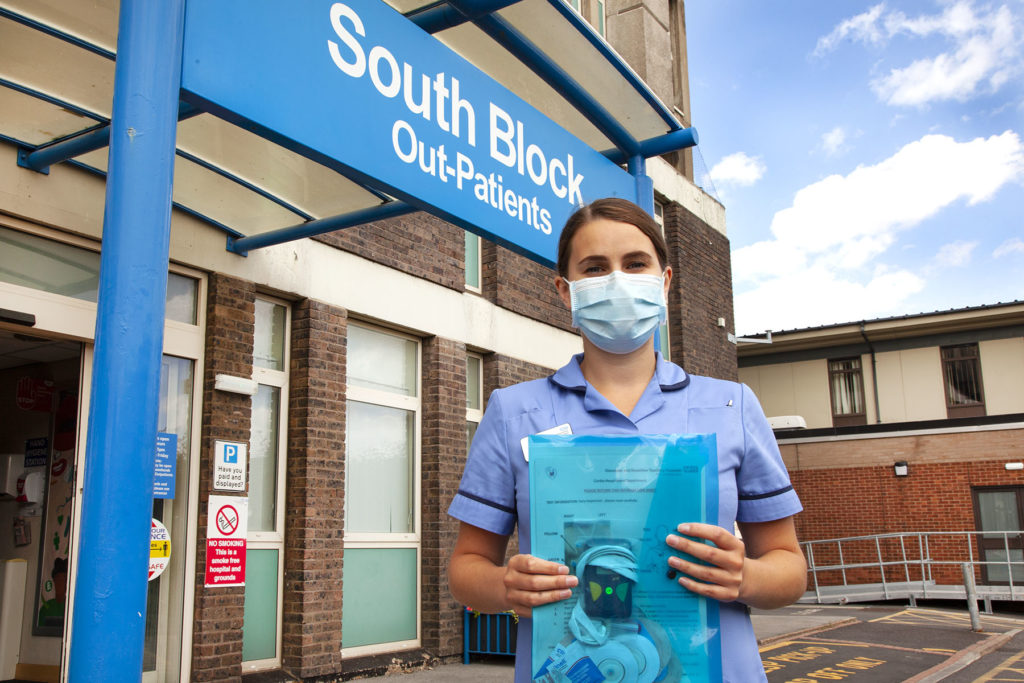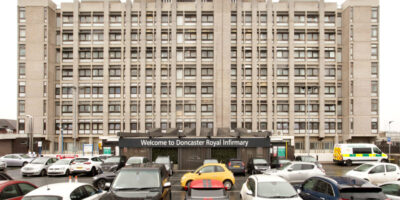Before the COVID-19 pandemic, 100% of ECG patients were seen in clinic and fitted with a monitor, which is roughly the size of a credit card, hooked up to three electrodes and set to record the activity of the heart for anywhere from 24 to 72 hours.
With the infection prevention and control challenges presented by coronavirus, and the resulting delays in getting people in and out safely, inspired by a similar service within phlebotomy, the department decided to roll-out the drive-through.

Patients now arrive at Doncaster Royal Infirmary or Montagu Hospital and park in a reserved parking spot. They then call a dedicated mobile phone number letting the service know they have arrived and a member of staff will greet them and present the device after asking a few important questions. The patient also receives an instruction pack which contains very clear instructions and a link to a YouTube video showing how to properly hook up the electrodes.
Sarah Ritzmann, Chief Cardiac Physiologist at the Trust, said: “The drive-through service means that clinicians can save time between each patient whilst still being able to provide a quality, COVID-secure service to our patients.”
Approximately 80% of relevant patients now use this service (clinicians establish whether there may be challenging circumstances which would make it too difficult for a patient to do it themselves) and it has audited well, with patients recommending the service within satisfaction surveys.
Sarah continues: “Our patients who have used this service so far have all been pleased with how easy it now is to access. It reduces the need for a lengthy hospital appointment and is less of an intrusion on their day and a lot of our patients feel more comfortable not being in a waiting room during this time. We have also carefully analysed the ECG recordings from a group of patients using the drive through service and a group of patients who attended in clinic and we are confident that this new, more efficient way of carrying out the test results in the same quality of results.”
Ultimately, the new drive-through service means more ECG tests can be carried out each day, with around 100 conducted each week, and the clinical spaces can be used primarily for those essential tests which must be carried out face-to-face, ultimately helping to reduce waiting lists which have been generated as a result of COVID-19 challenges.
The Cardio-Respiratory Department is now also using this drive-through based care model for pulse-oximetry monitors and diagnostic sleep study equipment.
The Trust has had similar successes with their drive-through phlebotomy (blood taking) and COVID-19 swabbing services prior to procedures and surgery and is considering how, with the help of additional funding as part of the ‘Accelerator Programme’, to use this model to work differently in the future, to improve patient experience, access to services and, crucially, minimise waiting lists.



